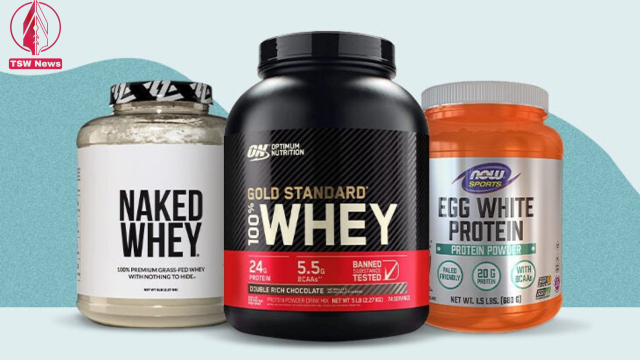If You are Using Protein Powder, Know is it Good or Bad for Health
- Posted on May 25, 2023
- Lifestyle
- By ojashwini shrivastava
- 807 Views

Protein Powder:-
Protein powder has become increasingly popular in recent years, as individuals seek to enhance their Fitness goals, build muscle mass, or simply supplement their dietary intake. Marketed as a convenient source of protein, protein powders promise a plethora of benefits. However, it is important to examine the potential harmful effects associated with their use. In this article, we delve into the dark side of protein powder and shed light on its potential risks to human health.
Kidney Damage:
One of the most significant concerns surrounding protein powder usage is its potential link to kidney damage. High protein diets, coupled with the consumption of protein powder, can put excessive strain on the kidneys, leading to complications such as impaired renal function, kidney stones, and even kidney failure. Studies have shown that long-term consumption of excessive protein can lead to a decline in kidney health, particularly in individuals with pre-existing kidney conditions.

Digestive Issues:
Protein powders often contain additives and artificial sweeteners that can wreak havoc on the digestive system. Ingredients like lactose, gluten, and soy can trigger allergic reactions or intolerances in some individuals, leading to symptoms such as bloating, gas, diarrhea, and stomach cramps. Moreover, some protein powders contain high levels of fiber, which can cause gastrointestinal distress if consumed in excess.
Heavy Metal Contamination:
An alarming concern associated with protein powders is the potential presence of heavy metals, such as arsenic, lead, cadmium, and mercury. These toxic substances can find their way into protein powders during the manufacturing process, as they are present in the raw materials used. Regular consumption of these heavy metals can accumulate in the body over time, posing serious health risks such as organ damage, neurological disorders, and even an increased risk of cancer.
Hormonal Imbalances:
Certain protein powders contain added hormones, such as testosterone or growth hormones, which are meant to enhance muscle growth and recovery. However, the consumption of these hormones can disrupt the delicate balance of hormones in the body, leading to potential side effects such as acne, hair loss, mood swings, and reproductive issues. Moreover, excessive protein intake can also place strain on the liver, which is responsible for metabolizing hormones.
Nutritional Imbalance:
Relying heavily on protein powders as a primary source of protein can lead to a nutritional imbalance. Whole foods offer a wide array of essential nutrients, including vitamins, minerals, and dietary fiber, which are often lacking in protein powders. By substituting meals or regular protein sources with powders, individuals may miss out on these vital nutrients, potentially compromising their overall health and well-being.
Conclusion:
While protein powders have gained immense popularity in the health and fitness industry, it is essential to recognize and understand the potential harmful effects associated with their use. Kidney damage, digestive issues, heavy metal contamination, hormonal imbalances, and nutritional imbalances are some of the significant risks that come with excessive or long-term protein powder consumption.

To maintain a healthy lifestyle, it is recommended to obtain protein from a well-balanced diet comprising a variety of whole Foods. Consulting with a healthcare professional or registered dietitian can provide personalized guidance on meeting protein requirements without resorting to potentially harmful supplements. Remember, the key to optimal health lies in moderation, variety, and making informed choices for long-term well-being.
For more updates keep visiting our website www.topstoriesworld.com where we provide unbiased, true and top stories of the world.




